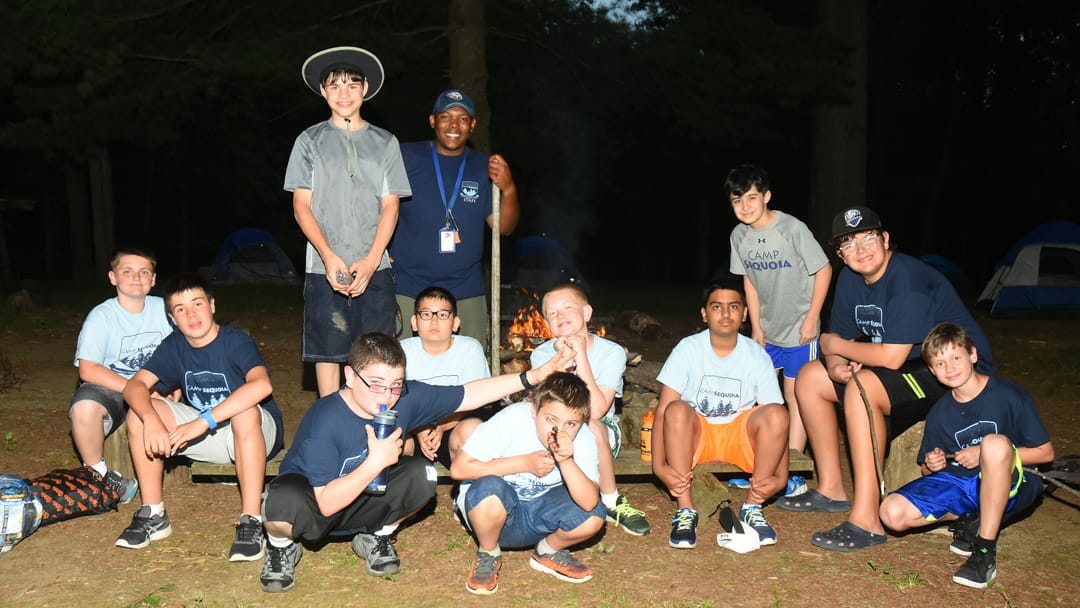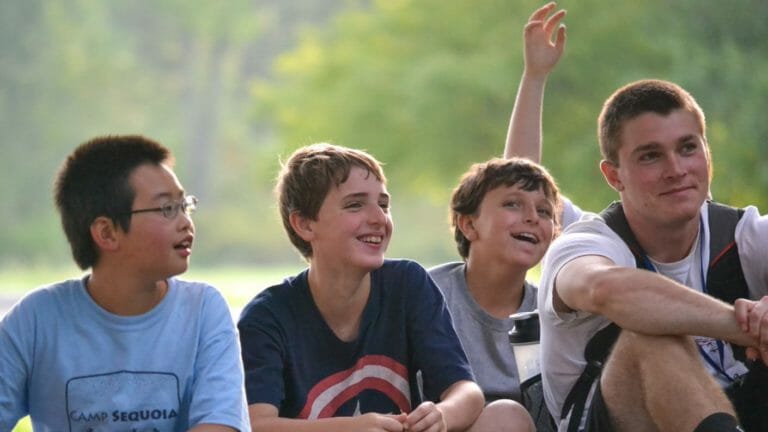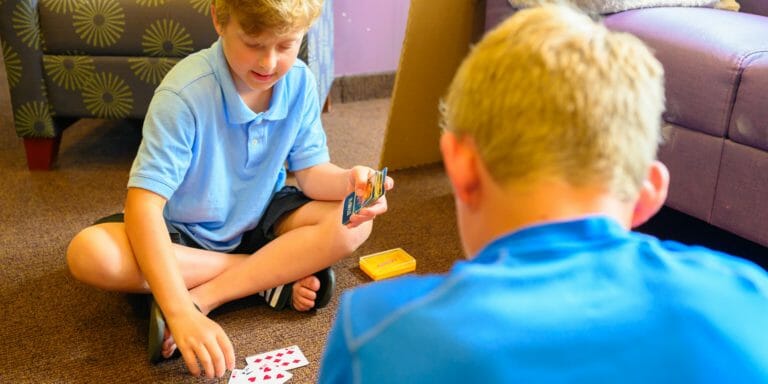

This blog is the first in a series of resources provided by teachers, social workers, clinicians and therapists from Camp Sequoia’s social skills leadership team. Each blog will be a blend of experience, resources, and guidance to help students develop social resilience, social cognition, social awareness to help kids become their best social self. Some of the social skills resources and ideas will be based on our expertise as the first residential camp in America founded with a specific social skills growth mindset. Other social skills insights will be based upon what works to provide social growth at summer camp, at school, and in the community writ large.
Each generation has their own social challenges, many of which manifest themselves via changing technologies. Social skills rules changed with the advent of electrified homes, home phones, cell phones, dial-up and broadband internet, and then with video conferencing. Now, we find ourselves with a technological inflection point exacerbated and intrinsically interwoven with a public health crisis. Parents understandably have concerns and seek guidance when many students are increasingly learning via screen during a global pandemic. The Cleveland Clinic has some guidance on this as well. These social skills challenges are difficult for neurotypical kids, and more so for 2e, twice-exceptional, ADHD, ADD or any kid who tends to do better with adults or younger kids than their age mates.
Nature Facilitates Social Skills Growth
Camp Sequoia uses a research-based, evidence-informed model of social skills development. Having a social skills camp that integrates social skills into the fabric of play and scaffolded success is important. Children can engage face to face in places and spaces that allow them to develop social skills in a meaningful and transferrable context. There are two specific social skills modules that evidence supports as effective for building meaningful social bonds. The first of these social skills contexts is nature-based.
As an Eagle Scout and President of the local Master Naturalist chapter, I spend a great deal of time camping, hiking, and generally out in nature. Understanding nature led to an appreciation of both the value of unplugging from a screen to the social framework that exists on a trail or around a campfire. The social bonds that can be forged by a small group, focused on a shared experience (making S’mores) for example without distractions of phone, traffic, or the machinery of society, has proven to have lasting benefit long after the campfire embers have died away. For a deeper dive into this, check out Richard Louv’s Last Child in the Woods and his discussion of Nature-Deficit Disorder.
Specifically, just like listening to a waterfall, gazing into a campfire evokes a sense of community that stretches back through millennia. Under the social scaffolding of trained professionals, this setting gives kids an object of focus that serves to build social skills and enhance friendships. While Camp Sequoia was the first residential program built on a social skills foundation, we are excited that all kids can benefit socially from summer camp. For details on making camp a place to thrive, check out my article in Feb 2020 Attitude Magazine (paywall for non-members of CHADD).
Campfires Provide Not Just Warmth – But Social Skills Growth Too
Around a campfire, with variable light, campers may not have a full picture of the faces and expressions, but learning social skills at camp is more than just facial expressions. Understanding bidirectional, small group conversation, with a set focal point (e.g. the fire), helps captivate the attention and focus conversation amongst the camp social group. Anyone who has done camping or backpacking can attest to the bonds forged around a campfire. Our kids appreciate something tangible as a means to capture the essence of the experience and have a memento, and a reminder of the connections they experienced at the campfire– and the thread that binds them to something greater.

In short, there is a campfire tradition that traces its roots back to 1907 and Baden Powell, the founder of the Scouting movement that commingles (cold) ashes from campfires that can be carried on with campers to their next social campfire. The pedigree of these ashes reaches across generations, continents and cultures. It is a wonderful thing for a child to have a memory in a small vial that can represent a wide swath of history AND something that they can share at their next campfire. It is always great to hear our campers talk about events with friends and family (even if it is a neighborhood BBQ) where they can sprinkle their small piece of Camp Sequoia campfire ash and recount the positive social experience that the campfire elicits, often months or years after our evening of Rustic Retreat at camp.
Game Nights at Camp Sequoia Allow Our Campers to “Read the Room” – An Important Social Skill
The second resource on social skills comes as information about a book, a podcast, and an approach that Camp Sequoia has utilized for years to enhance in vivo social skills development for our campers. So often in life, and in social situations, we are working with partial realities, incomplete facts, or perceptions based upon past experiences that may not be directly applicable to the situation at hand. Dr. Maria Konnikova was recently featured on a podcast for her book, The Biggest Bluff, which traces her journey in learning the game of poker and the social benefits of understanding that in life we have limited information and finding a game that teaches us to effectively process information in a way that is transferable to life. As a psychologist, her focus has been on the processes of human choice, chance and outcomes related to how we present ourselves to the world. Gleaning skills from a game of pure chance would be impossible, just as attempting to glean transferrable social skills from a game where there wasn’t an element of luck or the unknown would be just as useless (and the game wouldn’t be any fun to play anyway).
The book and the interview, as well as related conversations about Von Neumann’s Theory of Games, mirror what Camp Sequoia has been doing for years to help kids learn to read the room and have some immediacy to the feedback from their decisions. As Dr. Konnikova elucidates, having “no-limit” really works as a metaphor for life. It lays bare the idea of risk/reward without the benefit of a safety net.
During game night at Camp Sequoia, social skills are on the table. This vehicle provides opportunities for structured engagement with peers, social conversations and modeling of the thrust and parry of what Kenny Rogers would call “reading people’s faces“. It allows our community to socially model decision making, impulse control, delayed gratification, and social cognition within the context of a game of cards. Of course, no actual money is at stake on game night, and the prizes are gilded decks of cards, but for our kids, the engagement and learning about themselves and others is the true social skills prize.

Card Games Allow Campers to Evolve Their Skills in Real Time
One of the organic social skills traditions that has come out of our game nights as the field winnows down from multiple tables to the final few players is that of positive reinforcement and support by the vanquished for the last players at the final table. As the final river card is dealt, and one camper is victorious, their victory does not exist in a vacuum. They’ve learned, through near-instant feedback, the types of choices and social reads of others that yield positive outcomes and those that do not.
As a microcosm of life, it is great for kids to be able to get this type of feedback on their ability to read and situation and make appropriate determinations in real-time. This builds a skill set that too often in life takes longer to develop and see results (either positive or negative). When the ultimate winner receives the gold-plated cards as their trophy, it has become tradition to open the deck and present the runner up with the two jokers as a positive social gesture. We often find that the social skills, perceptions, and social growth extend far beyond Camp Sequoia’s game night.
Brian Lux
Director
Brian is a licensed k-12 Master educator whose work on social skills development has been presented at the International Conference on ADHD, the World Gifted Conference and has been shared in a myriad of in-person, print and online venues. He consults with students, families and schools regarding best practices for social skills success for non-neurotypical kids. Check out his recent article in CHADD magazine. Camp: A Place to Thrive. He can be reached directly at office@camp-sequoia.com.
